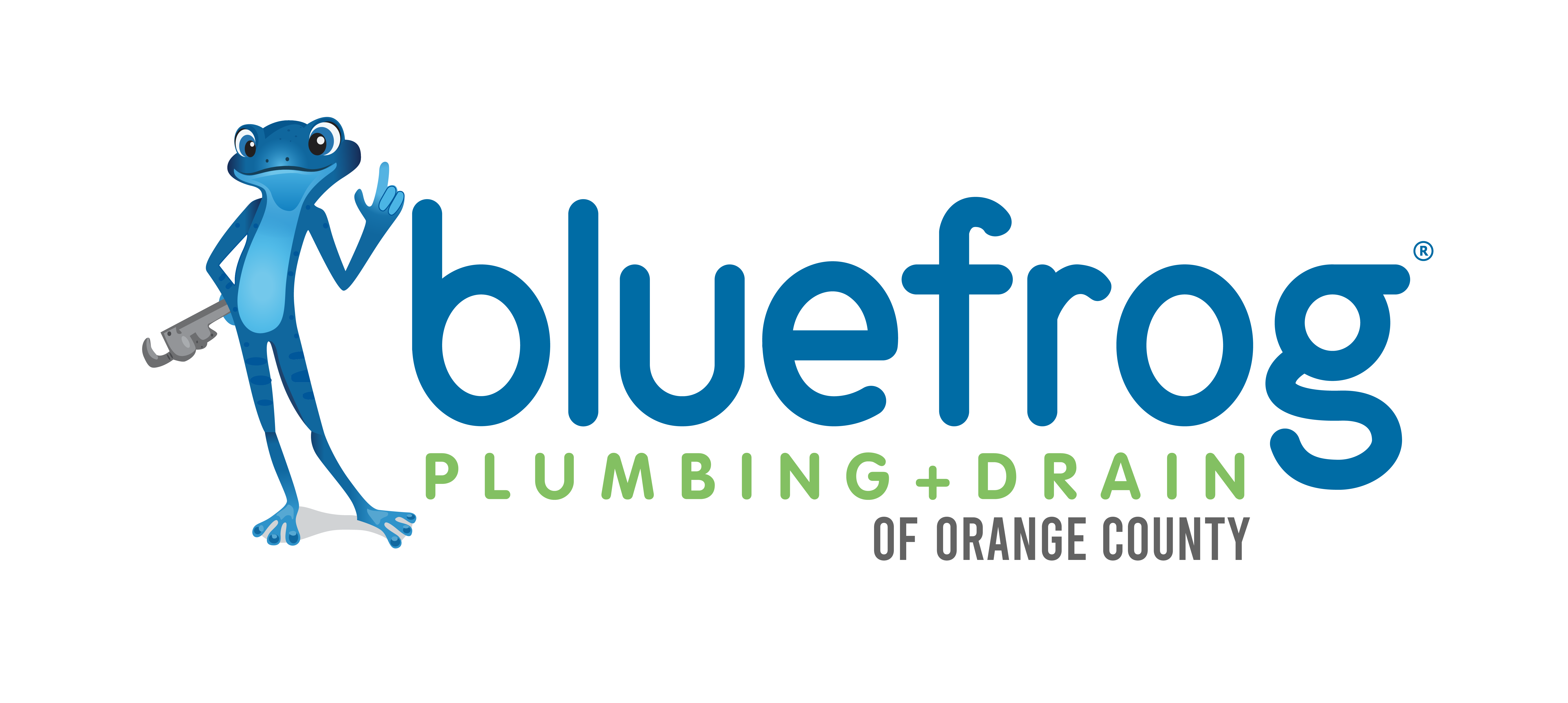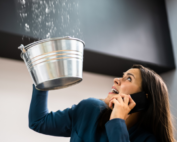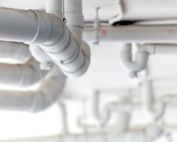A plumbing system consists of a complicated series of pipes, fixtures, and appliances that provide the infrastructure to run a well-functioning home. In this article, we will focus solely on plumbing pipes and ways to protect pipes from conditions that tend to shorten their lives.
We will examine the common causes leading to pipe deterioration, such as water quality, high water pressure, improper disposal habits, and faulty installation methods. These conditions can lessen a pipe’s ability to function properly and will add to the probability of a shortened lifespan.
We will look at the various pipe materials used in today’s construction for water supply lines and drainage pipes and learn how each type of pipe has its own set of vulnerabilities.
We will learn to recognize the early signs of degrading pipes and why early detection and ongoing maintenance play a major role in extending the life of plumbing pipes.
Lastly, we will look closely at the causes of pipe failure and steps homeowners can take to protect their pipes from frequent repairs or replacement, creating unnecessary expenditures and possible infrastructure damage.
Options For Plumbing Pipe Materials
Plumbing pipes are used to carry water to and away from plumbing appliances and fixtures. Some pipe material is better for water supply lines and some types are best for waste removal. Here we will look at the most common options for both jobs.
Water Supply Lines
Water supply lines carry fresh water into homes. They must be made of materials that can handle both hot and cold water and can withstand the higher pressures water lines must endure.
PEX Pipe
Cross-linked polyethylene pipe is a durable plastic piping used in hot and cold water distribution lines. It is flexible enough to bend and twist through tight spaces and can withstand the pressure that is required for water supply lines.
Copper Pipe
Copper pipes are the most popular choice for water supply lines. They are durable, dependable, and safe as they are impervious to outside chemical infiltration. Copper pipe is able to withstand high pressures and temperatures and is resistant to corrosion and scale, two major causes of pipe failure.
CPVC Pipe
CPVC is the abbreviation for Chlorinated Polyvinyl Chloride and is a type of plumbing pipe used for water delivery. It is lightweight and easy to install and can withstand hotter temperatures than its earlier version, known as PVC piping. This pipe type is highly resistant to corrosion and scale, making it a good plumbing pipe choice.
Drainage Lines
Every drain in a home carries solid or liquid water out into the public sewer system or private septic tank. These lines are mostly beneath the soil and are difficult to access, which is why durability and longevity are of utmost importance.
PVC
PVC, or polyvinyl chloride, is a very long-lasting plastic pipe material with an expected lifespan of more than 100 years. It is corrosion resistant, able to keep tree roots at bay, and has a smooth interior so waste can flow easily. It is an excellent choice for waste lines.
ABS Pipe
ABS piping, also known as acrylonitrile butadiene, is commonly used in drain, waste, and venting as well as sewer lines as it is a long lasting and durable pipe material. ABS is rust-resistant, which helps to prolong its life, and is a cost-effective material that can tolerate extreme conditions such as fluctuating temperatures or excessive shock.
Cast Iron
Cast iron piping has been in use for many years and is still being used today. It has the ability to withstand high pressure and boasts a long lifespan, but its durability can be threatened.
Causes Of Pipe Deterioration
Plumbing pipes are installed with the intention of lasting a long time, but there are factors that interrupt the longevity of pipes and cause them to fail before their time. Here we will look at 7 common causes of early pipe failure.
Poor Installation Practices
When pipes are initially installed incorrectly it can lead to all sorts of issues that can shorten the usefulness of plumbing pipes. If pipes are not secured properly to studs and floor joists, they can vibrate unnecessarily, causing the connections to loosen and leak.
There are many different types of pipe material running through homes, and correct connections must be made between them to ensure a watertight fit. If improper connections are made, leaking will undoubtedly occur.
Also, using incorrect pipe material can lead to a plumbing disaster. Not all pipe material has the ability to handle high water temperatures or pressures, and failure is certain to occur if the wrong type of pipe is chosen for a particular job. PEX is susceptible to incorrect pressure testing, and that can lead to leaks.
CPVC pipe fittings are prone to cracking and warping, and the pipe itself can become brittle over time if installed in threatening environments. This can lead to leaking and premature replacement of the pipe.
Extreme weather conditions can also cause PVC to warp and crack and this pipe option is susceptible to negative chemical influences coming from the water it carries to the ground surrounding this pipe type.
Corrosion
Pipe corrosion can negatively affect the quality of drinking water and it can shorten the life of plumbing pipes. Especially prone to corrosion, are pipes made of metal, but plastic pipes can corrode as well.
Corrosion is the deterioration of pipe material as it interacts with its interior and exterior environment. Water containing dirt and sediment or water that is high in minerals such as calcium and magnesium can cause corrosion. Even the soil surrounding pipes can contain chemicals that can destroy pipes.
PEX pipe is susceptible to highly chlorinated water, which leads to corrosion. Excess chlorine in the water supply can cause pipe connections to leach zinc into the drinking water, which can lead to health issues and early replacement of the plumbing pipes.
In areas with acidic water, copper piping is prone to corrosion leading to pinhole leaks. Although this can be a cause of a shortened pipe life, this hazard is well known so precautions can be taken in advance to minimize or eliminate this condition.
Cast iron piping is susceptible to corrosion and rusting, which can accumulate on the pipe interior and lead to sewer backups and frequent clogging.
Tree Root Invasion
A major cause of early pipe failure occurs in sewer lines from tree root invasion. Tree roots are great at finding small cracks in sewer lines where they enter, seeking water and nutrients. A neglected sewer line can quickly fail due to roots filling the pipe’s interior, keeping waste from passing. This causes sewer backups and unsanitary conditions inside and out.
Ground Movement
Outdoor plumbing pipes are supported by the ground surrounding the pipe. When something takes place, such as earthquake activity or nearby construction, the soil can shift and no longer support the pipes adequately. This can lead to sagging pipes or pipe sections disconnecting from each other and leaking. If this occurs, the pipes will need to be repaired or replaced.
High Water Pressure
When water travels through plumbing pipes at a high velocity, the pressure exerted on the pipe joints and interior lining of the pipe is extreme. This leads to premature wear and tear and early replacement, but not before leaks and damage to infrastructures are incurred.
Excessive Use Of Chemical Drain Cleaners
When plumbing pipes become clogged many homeowners reach for chemical drain cleaners. Although highly effective for removing blockages, the chemicals in the cleaners pose a health risk and are detrimental to pipe material. Never use chemical cleaners because they ruin plumbing pipes.
Improper Disposal Habits
Putting the wrong items down your drains can lead to early pipe replacement. Improper disposal always creates clogged pipes and clogs, loosens pipe joints, and places excessive pressure on pipe linings leading to possible flooding from pipe bursts.
Signs Your Pipes Are Failing
As we have learned, there are many causes of pipe deterioration and failure. The earlier you discover your pipes are under attack, the better, so here are some common signs to watch for that indicate you are having plumbing pipe issues.
Poor Water Quality
You will recognize issues with plumbing pipes when the quality of your water decreases. This may be seen as poor-tasting water, discoloration, or cloudiness.
Increased Water Bills
When plumbing pipes deteriorate, they frequently spring leaks, and leaking water will increase your monthly water bill. Always assume a high bill is related to a pipe failure.
Low Water Pressure
As corrosive material collects on the interior of your pies it narrows the amount of space available for weather to flow. If this accumulation becomes thick enough, it can slow down the pressure of the water traveling inside the pipe.
Sluggish Drains
There are several reasons your drains may be sluggish in relation to your pipe’s health. Clogged or blocked drains restrict water passage causing slow-to-empty drain pipes. Cracked or damaged pipes can also permit dirt and debris to enter, further restricting the passage of water.
Stained Walls And Ceilings
Pipe failure is often represented by stained ceilings and walls. As pipe joints fail and pipe walls thin, water will leak into the surrounding areas leaving a clear announcement that a plumbing professional should be called.
Methods To Extend The Life Of Plumbing Pipes
Install Water Filtration System Or Water Softener
Some of the conditions leading to early pipe failure are related to chemicals and minerals found in the water they carry. Installing a water filtration system or water softener will help reduce harmful particles in the water, making it less of a threat to pipe materials. There are many options from which to choose, so consulting with a professional plumber is a must!
Do Not Ignore Minor Issues
A big way homeowners can help prolong the life of plumbing pipes is to stop ignoring seemingly minor leaks, clogs, and out-of-the-ordinary situations. Addressing minor issues promptly can save homeowners from unnecessary plumbing emergencies and help prevent premature pipe deterioration.
Practice Proper Disposal Habits
Proper waste disposal; is key to healthy pipes. Improper disposal can create grease-lined pipes, clogs, and blockages that put undue stress on plumbing pipes that can require replacing long before their intended life expectancy. Learn the rules of disposal and follow them precisely.
Enroll In Yearly Plumbing Inspections
Beyond any doubt, the very best method for avoiding premature pipe failure is to enroll in a yearly plumbing inspection. Maintenance and cleaning of pipes when necessary, as well as making prompt repairs, will help keep your pipes in great condition. A professional inspection will also benefit homeowners since an expert will know when the right time is to replace your plumbing. Proactive replacement of plumbing pipes is always better than an emergency replacement!
Looking For A Plumbing Professional?
We are the plumbing company with the knowledge, expertise, and honesty to help assess plumbing pipes and make responsible suggestions on how to best maintain and monitor them, ensuring they function properly and last for many years to come. Extending the life of plumbing pipes to keep families safe and comfortable is a goal we take seriously. Be a wise homeowner and call us today!

Slab Leaks: A True Plumbing Emergency
Home building following World War II was aggressive, so many houses were built on cement foundations to reduce the time it took to build them and to keep costs at a minimum. They were
How To Extend The Life Of Plumbing Pipes
A plumbing system consists of a complicated series of pipes, fixtures, and appliances that provide the infrastructure to run a well-functioning home. In this article, we will focus solely on plumbing pipes and ways
3 Silent Signs You Have A Plumbing Problem
Some plumbing issues announce themselves with a fury such as a drain backing up with sewage or a burst pipe, while others remain silent and destructive. In this article, we will reveal 3 signs



